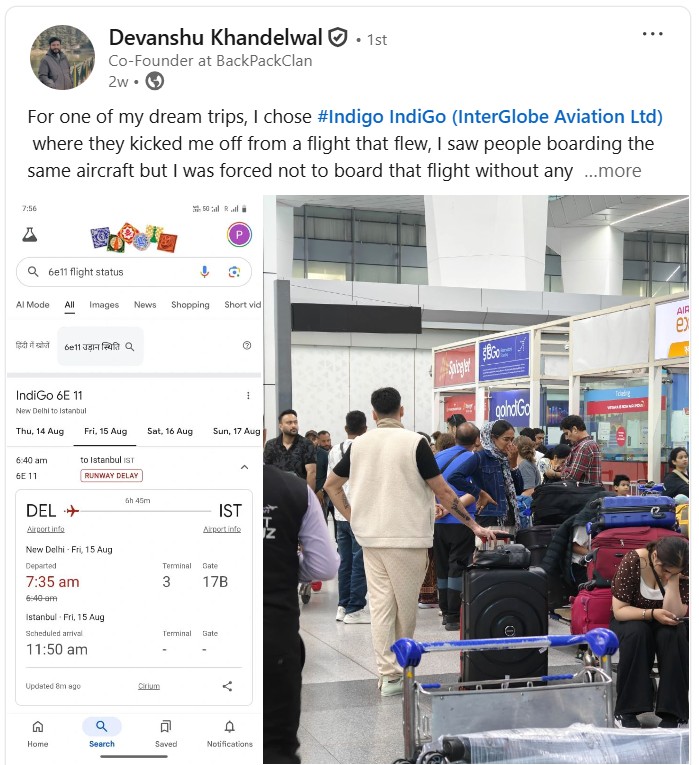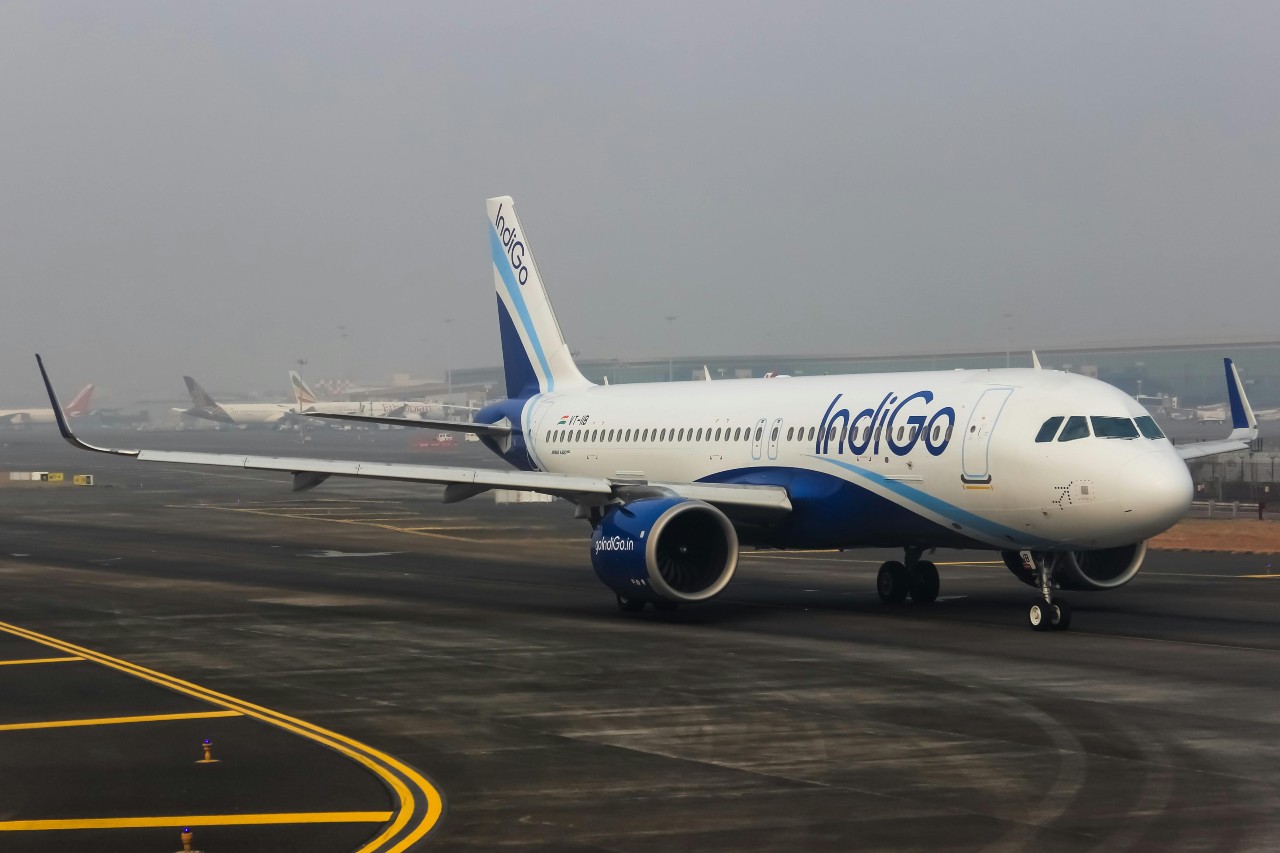When choosing an airline for an international trip, passengers expect reliability, transparency, and professional handling of unforeseen issues. But even seasoned travelers sometimes encounter experiences that test their patience and trust. Recently, Devanshu Khandelwal, co-founder of BackPackClan, shared his ordeal with IndiGo Airlines on LinkedIn, and it raises serious concerns about how airlines manage flight disruptions and customer communication.
The Dream Trip To USA That Turned Into a Nightmare
Devanshu had planned his dream journey with IndiGo Airlines on 15th August 2025, flying from Delhi to New York via Istanbul (DEL–IST–JFK). However, just five hours before departure, he received a call at 1:30 AM informing him that his flight was canceled. He was promised a callback from senior staff within 24 hours, but the urgency of his situation demanded immediate answers. Despite repeated assurances, no call ever came.
When he checked IndiGo’s website, the flight only showed a one-hour delay, not a cancellation. Hoping for clarity, he rushed to Delhi Airport only to find the check-in counters operating for the same flight he had been told was canceled. Confusion set in as passengers were boarding, yet he was not allowed to check in his luggage.

Last-Minute Changes Without Consent
At the airport, staff initially told him he could not board. Later, after further discussions, a senior staff member suggested his booking had been shifted from 15th to 16th August without his knowledge or consent. This meant his entire travel plan, pre-booked hotels in New York and Niagara Falls, along with a domestic connection to San Francisco, was disrupted. Despite requesting repeatedly for three hours, he was denied boarding while others boarded the same flight.
This raises a crucial question: how does an airline decide who boards and who doesn’t when such operational disruptions occur?
Questions IndiGo Airlines Needs to Answer
From Devanshu’s experience, four critical issues emerge that highlight gaps in IndiGo’s handling of international passengers:
- Why was the flight booking changed without the passenger’s consent?
- What was the selection mechanism for allowing some passengers to board while denying others?
- Why was the communication so inconsistent between website updates, phone calls, and airport staff?
- What compensation or resolution will affected passengers receive for their monetary and time losses?
IndiGo’s Bigger Problem: Passenger Communication
Airlines often face operational disruptions due to technical issues, overbooking, or scheduling conflicts. But the real test of customer service lies in transparent communication. In this case, the airline failed to provide timely updates, consistent information, or alternate solutions that respected the passenger’s plans. For travelers who invest thousands in hotels, connecting flights, and tours, last-minute changes can result in significant financial and emotional losses.
Social Media Reactions and IndiGo’s Response
The LinkedIn post sparked strong reactions from the travel community. One user commented, “This is shocking, Devanshu. Such mismanagement by IndiGo raises serious questions about transparency and accountability. Denying passengers boarding without fault, changing tickets without consent, and leaving people helpless at the airport is unacceptable.”
Another wrote, “Passengers deserve clarity, not chaos—trust once broken is hard to rebuild.”
A third user highlighted the ripple effect of such disruptions: “The concern is not just about a cancelled flight—it triggers a domino effect that disrupts every subsequent commitment. Beyond that, the mental stress it causes is immense and cannot be overlooked. Airlines must act with greater responsibility in such scenarios. If the issue stems from overbooking, it is your duty to take accountability and ensure passengers are accommodated on a suitable alternate flight. Leaving customers stranded without resolution is simply unacceptable.”
In response, IndiGo Airlines commented on the post: “Hi, we regret to know about your experience. We are getting this checked. Kindly allow us sometime.”
While the acknowledgement is a start, affected passengers still await clear answers and concrete solutions.
IndiGo Airlines has built a reputation in India for being one of the most punctual and cost-effective carriers. However, international routes demand a higher level of customer care. If issues like these continue, the airline risks losing credibility among global travelers.
The question is not just about one missed flight but about trust. IndiGo must clarify its processes, improve communication channels, and provide fair compensation to affected passengers if it wants to remain competitive in the international market.

